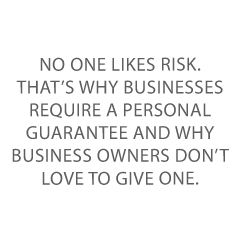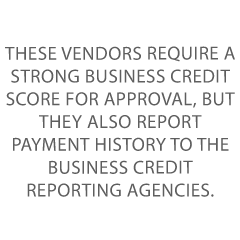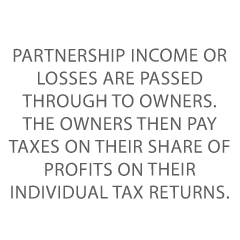
3 Surprising Ways Personal Financing Affects Business Funding
It makes sense that, if you do not separate your business credit from your personal credit, you could run into issues. Most get that if they fund their business with their personal credit, their personal finances could suffer. But, did you know that even if you have separated everything beautifully, the reverse can still be true? Here are 3 ways personal financing can affect your ability to get funding for your business.
How Does Personal Financing Impact Business Lending?
Some business funding options consider your personal credit score no matter what. For example, all traditional loans, SBA loans, and even the Credit Line Hybrid focus on personal credit score. Generally, they want to see a personal score above 650, though there are exceptions. The issue goes beyond this however.
Factors that Affect Personal Credit
The number one factor that affects personal credit is paying on time. However, some other factors that can affect your personal credit score include:
- How many accounts are reporting payments?
- How long have you had each account?
- What type of accounts are they?
- How much credit you are using on each account versus how much is available
This last point is important. It includes everything from credit card debt to personal financing for auto loans and mortgages. If you max out your limits on everything without paying it down significantly, your personal credit score will be negatively impacted. All of this means, you could be making all payments on time and still run into issues.
#1:Your Personal Credit Score Can Affect Your Business Credit Score With the Business Credit Reporting Bureaus
It’s true. Some business credit reporting agencies take your personal credit into account. They use your personal credit in the calculation of the business credit score they release to lenders. This means if your personal credit score is bad, your business credit score could suffer.
Experian Business Credit
Experian is different from the other two main business credit reporting agencies in one very important way. Of course, business credit is credit in a business’s name. It depends on how well a company can pay its bills. Yet, Experian uses both consumer and business credit information to gauge risk. They find a blended score is more accurate and predictive.
FICO SBSS
This score is becoming increasingly common and it’s a lot trickier. FICO SBSS stands for FICO Liquid Credit Small Business Scoring Service. Unlike your personal FICO, the SBSS reports on a scale of 0 to 300. The higher the score the better, and most lenders demand a score of at least 160.
The scoring model for this score is not the same as other business credit scoring models. It uses your business and personal credit scores, but it does so much differently than Experian.
The formula for calculations is proprietary and well-guarded by FICO. They do not make the information public. Unlike the other business credit reporting agencies, you cannot request a copy of your report or see your score. Here’s why. Surprisingly, this score can actually vary from lender to lender. That’s right, two different lenders can get two different scores for your business from FICO SBSS at the same time.
FICO SBSS Calculation
Here’s how that works. Lenders can ask for certain factors in the score to carry more weight than others. Your score can vary depending on how a lender weighs each factor. One lender may put more weight on your personal credit score or your business credit. Meanwhile, another may choose to weigh annual revenue as more important than payment history. It is their choice.
FICO searches business credit information from business credit agencies. This includes D&B, Experian, and Equifax. They use this information in the calculation of your score. So, your score with these bureaus affects your FICO SBSS.
The only way to ensure that your personal credit doesn’t impact your business credit in a negative way is to keep your personal credit in good order. This is because you really can never know which factors the lender is going to weigh more or less for that matter.
#2: You May Have to Use a Guarantor to Get Business Funding
Because some types of funding require a strong personal credit score, you may need to use a guarantor to get access. This includes some funding types that can help you build business credit, like the Credit Suite Credit Line Hybrid.
Credit Line Hybrid
A credit line hybrid is a form of unsecured funding. Our credit line hybrid even works for startups, and you can get a better interest rate than a secured loan. It reports to business CRAs, but you need a FICO score of at least 680 to qualify.
However, if your personal FICO isn’t that great, you can use a guarantor with good credit to get approval. It’s no-doc financing, meaning you do not have to turn in any financial documents. Using a guarantor could be worth it if you need funding quickly.
#3 Personal Financing Can Affect Overall Fundability
Business lending, at its core, is affected by the Fundability of your business. There are 4 core factors that affect business Fundability, and each of these factors is made up of a number of principles. Personal financial statements and other data bureaus are included in these factors.
Financial Statements
Some lenders will ask for personal financial information no matter what. Others may only look at them if the business is not considered creditworthy on its own. When it comes to personal financial statements, lenders are usually looking primarily at tax returns. It’s best to have a tax professional prepare them. Other information lenders may ask for include check stubs and bank statements, among other things.
Bureaus
There are other agencies that hold information related to your personal finances as well. ChexSystems is one example. They track bad check activity, and their report makes a difference when it comes to your bank score. If you have too many bad checks, you will not be able to open a business bank account. That, in turn, will cause serious fundability issues.
LexisNexis and the Small Business Finance Exchange also fall into this “other bureaus” category. They can have all sorts of information on you, like:
- Have you ever been convicted of a crime?
- Do you have a bankruptcy or short sale on your record?
- How about liens or UCC filings?
While these bureaus do not directly generate credit reports, they do share information with certain credit agencies. They then use this information for their reporting.
This means personal finance information they hold can affect the fundability of your business, and thus your business lending options.
Personal Financing Can Affect Your Ability to Get Business Funding
Whether it’s credit card debt, a mortgage, or just how you handle your personal bank account, your personal finance management can affect your ability to fund your business.
You cannot change that entirely. Still, you can limit the extent to which this is true. Separating your business from yourself and building a strong business credit score is the best way. Lenders will be able to depend less on the personal financing aspects of your creditworthiness, and focus more on the fundability of the business itself.
The post 3 Surprising Ways Personal Financing Affects Business Funding appeared first on Credit Suite.




 #2: Lender Negotiations
#2: Lender Negotiations









